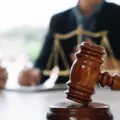
26 Oct How Many Different Types of Depositions Are There?
Understanding Different Types of Depositions
While many people believe depositions are all alike, each type of deposition has a different purpose and criteria. It is important to understand the different types of depositions in case you are ever summoned to participate.
How many different types of depositions are there? There are three different types of depositions: depositions upon written interrogatories, depositions upon oral examination, and depositions from video-recorded statements. The basic goal of each deposition is the same – to get testimony out in an organized fashion without having to travel back and forth or call multiple witnesses up on short notice. However, the way they work varies slightly depending on the type of deposition.
Keep reading to learn more about the various types of depositions and how each is used in a legal case.
Depositions Upon Written Interrogatories
 Let’s start with depositions upon written interrogatories, which are often shortened to just depositions. A deposition is a tool used by lawyers to gather evidence without putting their whole case at risk by calling witnesses up who may not be reliable.
Let’s start with depositions upon written interrogatories, which are often shortened to just depositions. A deposition is a tool used by lawyers to gather evidence without putting their whole case at risk by calling witnesses up who may not be reliable.
These depositions are a series of questions either written out by a lawyer or given to the witness while the lawyer is present.
The attorney asks those questions and the person being questioned is free to answer as they will. There is no judge, there are no guidelines for determining what kinds of questions can be asked. There are also no limits on how long it may take to complete the process.
Depositions Upon Oral Examination
The depositions upon oral examination differ from depositions upon written interrogatories in that they have a more formal feel. This is because depositions upon oral examinations have various rules that help guide them along.
For instance, depositions permit only one legal representative from each party to ask a question at a time. Lawyers may only ask questions relevant to the case and typically last for a limited time.
Depositions From Video Recorded Statements
 Video depositions are depositions where the individual being questioned records their testimony beforehand and later plays it back during deposition.
Video depositions are depositions where the individual being questioned records their testimony beforehand and later plays it back during deposition.
This speeds up the process as you do not have to wait for days or even weeks after the deposition to receive all of the information that has been recorded as evidence.
Since depositions from video recorded statements were first started, they’ve freed up thousands of hours of valuable court docket time that would otherwise be bogged down with the two other types.
Why Are Depositions Needed?
Depositions are a very important part of legal proceedings. Without depositions, all that would exist are just accusations. One side might accuse another party of wrongdoing, but they wouldn’t have the proper evidence to support those claims if depositions hadn’t taken place first!
Although depositions may seem intimidating or impersonal, they serve an incredibly important purpose for society as well as justice itself. They bridge the gap between witnesses’ accounts and facts by providing a way to point out inconsistencies between testimonies before trial.
Facts About Depositions
Deposition is defined as a formal statement made by a witness under oath before an officer who records the testimony. A deposition is a form of out-of-court testimony that typically occurs when someone with information relevant to the case is unavailable (or unwilling) to appear at trial.
Lawyers will ask questions to find out the information they need for court cases during depositions. These questions must be relevant to the case. Depositions aren’t always meant to uncover new evidence. Sometimes they’re just used to refresh someone’s memory before taking the stand in court!
The more interviews involved in producing a deposition, the more likely it will acquire elements of an interview instead of just being a straight questioning session.
What Are The Ways A Deposition May Be Used?
There are a wide amount of reasons to use a deposition. Each use is dependent on the type of case and what the desired outcome may be.
Depositions For Documents Or Objects
There are certain depositions during which you need to show physical documents, physical items, or other tangible things. This type of deposition is called a deposition for the production of things.
Depositions To Take In-Person Testimony At Trial
Since depositions are interviews, depositions during which you need to take testimony in court are depositions to take an in-person testimony at trial. Such depositions will often be videotaped because everyone involved wants a chance to review what was said before it’s presented in court.
Depositions During Discovery
Depositions that occur during the discovery phase of civil litigation are depositions during discovery. These depositions can occur anytime after the initial disclosures have been exchanged between parties, but typically occur closer to the resolution of a case when more information is needed.
Depositions To Preserve Testimony
These depositions are to preserve testimony. The deponent is asked questions regarding past events to seal their testimony for later use in the trial.
Since these depositions are given before formal discovery has begun, the depositors tend not to ask many questions that will be answered with a “yes” or “no.” Instead, they try to elicit expansive answers that might yield important information in future depositions or trials.
Depositions By Written Question
If you have a large number of deposition requests, depositions by written question may be the most efficient way to gather information from numerous deponents.
These depositions can also involve attorneys submitting questions to deponents in writing, although depositions by written question normally do not involve depositions with multiple parties submitting questions.
Depositions Of An Expert Witness
Depositions of expert witnesses are depositions used to gather information from someone who has relevant knowledge about a case. These depositions tend to be quite formal even though they sometimes occur during the discovery phase of litigation. Expert depositions may also involve processes like “discovery by written questions” or depositions for “expert consultation.”
Deposition In Support Of A Motion
Depositions in support of motions can be any deposition that is given for use at trial concerning a particular motion. For example, if your client moved for summary judgment and wanted depositions to be used at the hearing, depositions taken in support of that motion would be depositions given for use at trial about that particular motion.
Depositions Taken By A Deposition Officer
Depositions that are given and then transcribed and submitted as part of a “deposition transcript” can sometimes reflect depositions taken by a deposition officer. This happens when parties agree to have an official-sounding person taking depositions instead of attorneys involved directly.
For example, if two parties finally reach an agreement on depositions as part of their litigation management order, they might choose to appoint someone to take all depositions instead of allowing each party’s attorney to conduct depositions. This ensures uniformity and continuity.
Depositions Taken For Settlement
Depositions that are given to an attorney instead of depositors tend to be taken for settlement. This allows attorneys to ask questions that might not have been allowed by depositors. It often adds a layer of formality concerning how depositions are handled. Depositions taken for settlement may even be videotaped.
Who Has Access To Depositions?
In most states depositions are automatically sealed from public view until they become part of the appellate record.
In these states, if you want a public trial, you must file a motion to have the deposition unsealed. Even if a deposition is not filed or made part of an appellate record, it can still be used at trial.
In federal court, a party can depose any party, witnesses identified by any other party, and anyone who knows the issues of the case.
To avoid surprises on cross-examination, if a deposition is scheduled for a party, that party must disclose the name and address of any potential witness.
Are There Any Negatives To A Deposition?
Despite depositions being a useful tool in adjudicating issues or gathering information before trial, they still have their downside. For example, questions asked during a deposition can be objected to on hearsay grounds or relevance.
Asking questions can also be expensive since each question asked must be paid for by the party implementing the strategy. If a witness is being deposed for several days of testimony, the costs can add up quickly.
What Else Could A Deposition Be Utilized For?
Depositions are often used to impeach or rehabilitate witnesses. If a witness is “unavailable” to testify at trial due to death or unavailability, one could take that person’s deposition testimony and then ask those same questions at trial. However, this strategy does not work if the testifying witness was available for deposition and was not called by the party who wishes to ask the questions at trial.
When the witness’ testimony is unfavorable, it makes sense for the deposing party to attempt impeachment through cross-examination. If this fails, then one could subpoena (after notice) that same person. They could then ask the same questions at trial to “rehabilitate” them, making them look credible and honest, despite what they said in their deposition.
The Importance Of A Good Deposition
Depositions are an important part of the legal process. They are used for many purposes. These include, but are not limited to, witness testimony, determining the factual basis for a motion, or discovery. They are a useful tool for attorneys to figure out the strengths and weaknesses of their case as well as what they can expect at trial.
It is important to prepare a list of questions ahead of time to prevent being surprised at trial. A well-prepared attorney will know what they want to accomplish during the deposition. This makes it easier to ask relevant questions, and have an expected flow of information.





